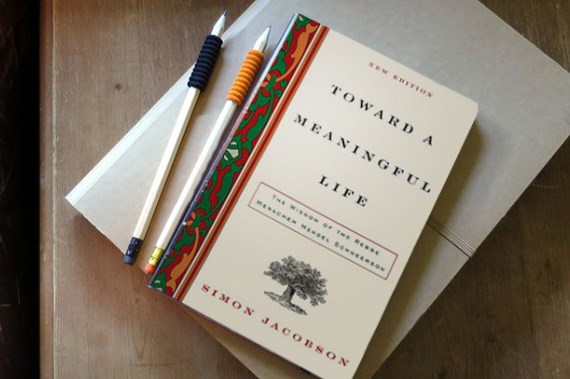Lately, I’ve been focusing on money. How to save it. How to spend it wisely. And how to get more of it. Then, last week, I attended a talk by Simon Jacobson, author of the bestseller Toward a Meaningful Life.
I’ve read the book, and it’s truly a remarkable and inspiring read. As a speaker, Jacobson has a very low-key, humorous manner, but his message always packs a punch.
Last week, he gave a talk here called “Is your self-worth defined by your net-worth?” which captured something far more important than the essence of money.
It expounded upon the intrinsic value of giving to charity. Jacobson told a true story about the famous and wealthy 19th century philanthropist, Moses Montefiore. In a meeting with Queen Victoria, Montefiore was said to have been asked about the precise amount of his personal wealth.
He told her a number, and she disputed it, claiming to have heard that he was much wealthier than that.
He replied that his real worth was what he gave away to others, because its benefit would live on. The takeaway from this story is that our self-worth is defined by what we give, not what we have.
This was a valuable reminder of the importance of sharing our ‘wealth’ with others, no matter the circumstances.
The adage that “it is better to give than to receive” is far more than just a saying. In some religions, giving to charity is considered an obligation; a duty incumbent upon every single person, regardless of their status.
To this end, anyone who gives to others is considered a philanthropist of one kind or another.
It’s the sharing of wealth or time or resources that qualifies one as a “giver.”
And no special eligibility is required. Except a good heart. We don’t need to be millionaires to help others.
We just need an attitude of fairness, love, justice and righteousness. The amount we give is inconsequential. It’s the act of caring for the welfare of others that counts.
So, the next time you’re in a position to give, act on it. Whether it be with cash, food, a blanket, or even just a kind word of support, do it. The reward will be tenfold. Which begs the question of whether the concept of altruism is really valid or not. I suppose, if we give charity with no expectation of return, and a conscious eschewing of gratitude, then altruism really does exist. But if we’re doing it for the tax receipt, or the thanks, then it goes out the window.
In some cases, it’s better not to overthink it. Just give. And not just during the holiday season.
Shelley Civkin is a retired communications officer



